Dear Readers, Vitamin B12 is a vital nutrient for the body. But many people don’t consume enough of it without even realizing it. Below you’ll find out how to recognize a vitamin B12 deficiency, what its consequences are and how you can remedy it.
What is vitamin B12?
Vitamin B12 is a characteristic vitamin. This means that it is a nutrient that your body absolutely needs to survive but cannot produce itself.
The vitamin must therefore be supplied from outside, usually through diet. The nutrient is produced exclusively by bacteria and therefore accumulates naturally in animal products.
A special protein, the so-called intrinsic factor, is needed for the absorption of vitamin B12. It is produced by the stomach lining and enters the intestine together with the food pulp.
Like all vitamins, vitamin B12 is not a single substance, but a collective term for a group of substances. The associated substances are called cobalamin. They have the same basic chemical structure and therefore perform similar functions in the body.
Vitamin B12 is a water-soluble substance, which means it does not require fat to be processed by the body. However, unlike other water-soluble substances, it can be stored for a long time.
The human body stores vitamin B12 reserves in the liver and muscles, which it can use to survive for several years.
Especially if you follow a vegan diet, you should consider supplementing with vitamin B12. You should keep in mind that your body can store the vitamin for a very long time and a deficiency only becomes apparent after a delay of many months or even years.
Functions of Vitamin B12 in the Body
Vitamin B12 is vital for your body. Vitamins play a particularly important role in metabolic processes.
It is a prerequisite for the formation of DNA, the carrier molecule of genetic information, blood cells, and nerve cells.
You will find out below exactly how it contributes to metabolism.
DNS
Vitamin B12, together with vitamin B9, is very important in the production of genetic material. Vitamin B9, better known as folic acid, is needed to produce nucleic acids, from which deoxyribonucleic acid (DNA) is produced.
This is where vitamin B12 comes into play, as it activates the folic acid stored in the body and makes it available for DNA production.
Blood and nerves
The vitamin exerts its effect on the blood and nerves in a complex process. First, it enters the stomach and intestinal tract through food. There it is released and transported to the small intestinal mucosa with the help of intrinsic factors.
It then spreads to the blood and nerve cells, helping to form new cells, regenerate old ones, and maintain cell function.
The daily requirement of vitamin B12
Although the body creates a reserve of vitamin B12 that it can live on for a while, you should still consume a certain amount of the vitamin every day.
This way you can prevent an unnoticed deficiency that only becomes apparent after years of undersupply.
Vitamin B12 deficiency
In the general population, a vitamin B12 deficiency is relatively rare if one has a balanced and varied diet. Nevertheless, 62 percent of pregnant women have such a deficiency.
Due to the large vitamin B12 depot, a deficiency often only becomes noticeable after years, but can lead to irreversible damage. It is therefore very important that the symptoms are taken seriously and a deficiency is diagnosed and treated early.
Causes of Vitamin B12 Deficiency
A vitamin B12 deficiency can occur if the body receives less of the vitamin than it needs over a longer period of time.
In addition, impaired absorption, increased consumption, or increased loss can reduce the amount of vitamin B12 in the blood.
Below you will learn in detail how a vitamin B12 deficiency can occur.
Insufficient supply
The most obvious and common cause of vitamin B12 deficiency is inadequate intake of the vitamin through food.
As already mentioned, the nutrient is produced exclusively by bacteria and therefore accumulates naturally mainly in animal products.
Consequently, vegetarians and vegans are particularly likely to suffer from a deficiency because they cannot meet their vitamin B12 requirements with a purely plant-based diet.
There is also a risk of malnutrition in the case of existing anorexia or an unbalanced diet in which sufficient intake is not ensured.
Lack of Istrinsic factors
In addition to insufficient intake of vitamin B12, a lack of intrinsic factors can also indirectly lead to a deficiency. The protein produced in the stomach is a prerequisite for the absorption of vitamin B12.
A deficiency of this protein can occur as a result of removal of the stomach or part of the stomach and in chronic atrophic gastritis, a form of inflammation of the gastric mucosa.
Impaired receptivity
Vitamin B12 enters the gastrointestinal tract via food, from where it is released.
In the case of existing intestinal diseases such as Crohn’s disease and ulcerative colitis or partial removal of the intestine, the intestinal absorption capacity is weakened.
As a result, the body can absorb and use less vitamin B12.
Loss or increased consumption of vitamin B12
Certain population groups such as pregnant and breastfeeding women have a temporarily increased consumption and therefore need for vitamin B12.
Specific illnesses such as chronic kidney and liver disease, also caused by excessive alcohol consumption, or a fish tapeworm infestation can also mean that the body cannot absorb parts of the vitamin or needs more of it.
Symptoms of Vitamin B12 Deficiency
It is difficult to identify a vitamin B12 deficiency based on symptoms alone. Many signs of deficiency also indicate other physical complaints. However, if you suffer from several of these symptoms, you should have your B12 levels checked.
Since vitamin B12 is involved in nerve function, cell division and blood formation, a deficiency affects these areas and can manifest itself in various forms:
Hair loss
Muscle weakness
Numbness and tingling in the limbs
Visual disturbances
Fatigue, lack of concentration, memory loss
Headaches, migraines
Depression
Food intolerances, allergies
Contrary to some assumptions, weight gain, excessive sweating and skin changes are not typical symptoms of a vitamin B12 deficiency.
Test for vitamin B12 deficiency
If you notice some of these signs of vitamin B12 deficiency, you should get tested. Even if you are likely to be deficient due to your restrictive diet or other factors, testing for a deficiency is appropriate.
One advantage of this test is that you can find out whether your symptoms might be due to another cause or whether you might be lacking more than one nutrient.
You can ask your doctor to test your blood to check your vitamin B12 levels.
If there is a medical reason for the examination, for example a suspicion of a deficiency, the costs are usually covered by the health insurance company.
You can also easily do such a blood test yourself at home using an appropriate test kit.
Such a self-test determines the concentration of holotranscobalamin in your blood, the active form of vitamin B12.
To do this, you take a blood sample yourself and send it to a specialist laboratory. The sample is examined there and you receive a report with recommendations for action.
Consequences of vitamin B12 deficiency
In addition to the symptoms that indicate a deficiency, a long-term vitamin B12 deficiency can have other serious consequences.
Some of these are irreversible and should therefore be avoided or treated as early as possible.
You will find out the consequences below.
Anemia
A direct consequence of a vitamin B12 deficiency is anemia. Due to the lack of vitamin B12, the body no longer produces enough blood cells. In this disease, the body lacks both the red blood pigment and red blood cells.
This in turn leads to paleness, persistent tiredness, poor concentration and headaches. Anaemia therefore has a fundamentally negative effect on general performance.
Neurological disorders
Since a vitamin B12 deficiency can no longer cause nerve cells to develop properly, neuronal disorders can occur as a result.
These disorders initially manifest themselves in the form of tingling in the arms, legs and tongue or a feeling of numbness.
They also lead to weakening of the muscles and an increased tendency to fall. In the worst case, they can also lead to sensory disturbances, which can lead to paralysis.
Cardiovascular diseases
A deficiency in vitamin B12 also leads to a folic acid deficiency because the body needs vitamin B12 to convert folic acid into its active form.
This deficiency in turn increases the risk of cardiovascular disease because the acid, together with vitamins B6 and B12, is involved in the breakdown of amino acids that damage blood vessels.
Memory impairment and dementia
Vitamin B12 is essential for protecting the nerves.
It is responsible for the formation of myelin sheaths, which surround the nerve fibers and ensure the correct transmission of the information contained in the nerve currents.
The vitamin also plays a role in the synthesis of hormones and neurotransmitters, i.e. messenger substances.
A vitamin B12 deficiency can lead to incorrect transmission of information and impaired memory performance over time.
In some cases, the deficiency can lead to secondary dementia, a form of dementia caused by other diseases or vitamin deficiencies.
Therapy: Treating Vitamin B12 Deficiency
In order to counteract a vitamin B12 deficiency and replenish the supply, it is first important to know what caused the deficiency.
Most of the time, a vitamin B12 deficiency is due to insufficient intake of the vitamin.
The amount of vitamin taken can then be increased in a targeted manner to correct the deficiency.
However, if there is a disturbance in the absorption or processing ability of vitamin B12, the cause must be treated additionally.
Groceries
Since vitamin B12 is produced exclusively by bacteria, it is only found naturally in animal products.
Traces of vitamin B12 in purely plant-based foods are either negligible or cannot be processed by the body.
The following foods have a particularly high vitamin B12 content:
it should be noted that the body often only absorbs a portion of the actual content of the food. About 60 percent of vitamin B12 can be absorbed from meat, 40 percent from fish, and only about 10 percent from eggs.
Ruminants such as cattle and sheep have what is known as a rumen, a forestomach with a distinctive flora of microorganisms in which single-celled organisms produce vitamin B12.
In horses and rabbits, vitamin B12 producers are located in the large intestine. In other animals such as pigs and poultry, vitamin B12 must be added to the feed. Humans therefore often only absorb the vitamin indirectly when they get it from animal products.

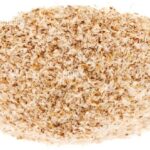

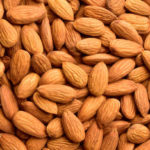
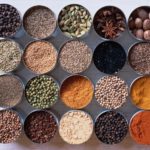
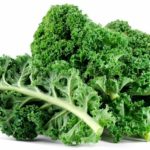

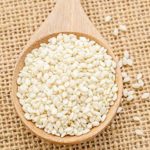





Thanks for sharing.